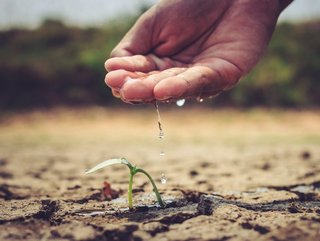Royal Philips, Unilever, Ingka Group & ZF: towards Net Zero

A recent World Economic Forum (WEF) article has drawn attention to the increasingly changing face of global companies.
The article names four leading organisations on the global stage, as they transform their operations towards circular economies, net-zero, ESGs and green-initiatives.
Procurement is central to unlocking ESG in the supply chain and our understanding of the means to tackle carbon emissions in organisational operations has expanded to now include variables beyond simple, overt and direct Co2 footprints (Scope 1).
The WEF article states: “Take the Alliance of CEO Climate Leaders as an example – 80% of the total 4.3Gt emissions footprint from these businesses is produced by their supply chains, otherwise known as Scope 3 emissions.
“This is much higher than both Scope 1 (emissions directly generated by a company) and Scope 2 (indirect emissions associated with the purchase of electricity or heating and cooling inputs) combined.”
The four giants outlined in the article that have already made headways towards these goals are Royal Philips, Ingka group, Unilever and ZF.
Royal Philips
Royal Philips (RP) has set a target of generating 25% of its revenue from circular products, services and solutions by 2025, according to the article.
“In 2018, the company announced its commitment to take back and repurpose all large medical systems that its customers were prepared to return by 2020. To support this, Philips started the Capital Equipment Coalition, a group of like-minded organisations, including ASML, Cisco, Dell, KPN, Damen, Lely, Enel and Vanderlande, to develop and share best practices.”
Ingka Group (Ikea and more)
A recent Procurement Magazine article, discussed Ikea’s approach to circular economies by focusing on the massive footprint of its furniture and mattresses etc.
Following this thread WEF states: “As part of its efforts to becoming a circular business, Ingka invested in RetourMatras, a company that dismantles mattresses and re-uses the waste, which has the capacity to recycle all mattresses disposed of in the Netherlands – 1.5 million annually. Ingka Group is not stopping there: it is targeting Belgium, Switzerland, Denmark, and Sweden next, and has made its first steps towards recycling mattresses in the United Kingdom.”
Unilever
Focused on sustainable sourcing, Unilever’s raw materials and packaging account for more than 60% of its direct value chain emissions.
This requires a firm emphasis on efforts to reduce emissions upstream of its operations.
“Unilever does not only collaborate with its own suppliers,” the WEF article states. “It is a member of the 1.5-degree Supply Chain Leaders Exponential Roadmap Initiative and the Transform to Net Zero Initiative where it collaborates with other businesses in similar and different industries to share learnings and ideas for accelerating climate action in value chains.”
Unilever has also been working with transport partners to test out battery-operated refrigeration systems in its trailers down-stream, and with customers to pilot warmer ice cream cabinets coupled with innovative new ice cream formulations.
Its efforts are increasingly geared towards the sustainable sourcing model which is to have a huge positive impact on the environment.
ZF (ZF Friedrichshafen)
ZF supplies systems for the automotive industry and has been working to reduce its carbon footprint through some key shifts in its operations.
“Since ZF directly and indirectly processes around 1.5 million tons of steel per year worldwide, one key lever to achieve this is the purchase of sustainable sourced material.”
The company is achieving this by collaborating with its suppliers.
“ZF recently concluded a long-term supply agreement with H2 Green Steel - from 2025 through 2032 the company will ramp up and supply ZF with 250,000 tons of steel annually from a plant in Northern Sweden. This plant has end-to-end digitization, electricity from renewable sources and uses green hydrogen instead of coal. Using green hydrogen instead of coal means that the chemical reaction that occurs during steel-making emits water as opposed to CO2.”
The main points that came out of the WEF article are:
- Tackling supply chain emissions could make a meaningful impact on the climate, but progress is slow.
- Four major companies from the Alliance of CEO Climate Leaders – Royal Philips, IKEA, Unilever and ZF – have shared how they are working to reduce emissions in their supply chains.
- The key principles to speed up progress are collaboration, CEOs dedicated to achieving Net Zero, and supportive policies.






